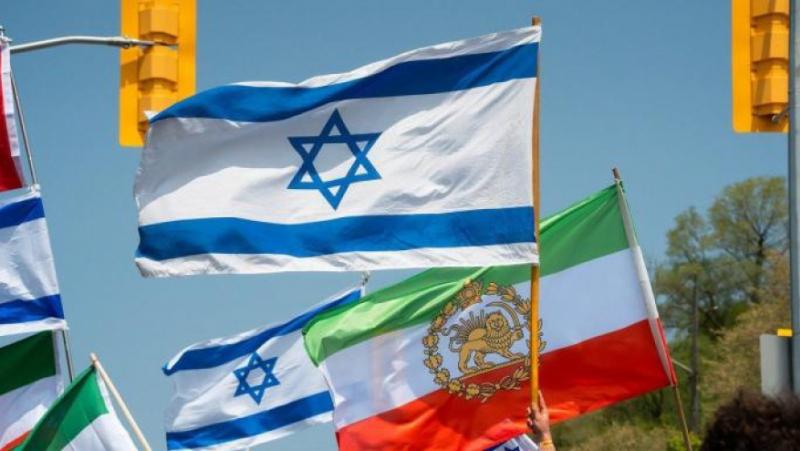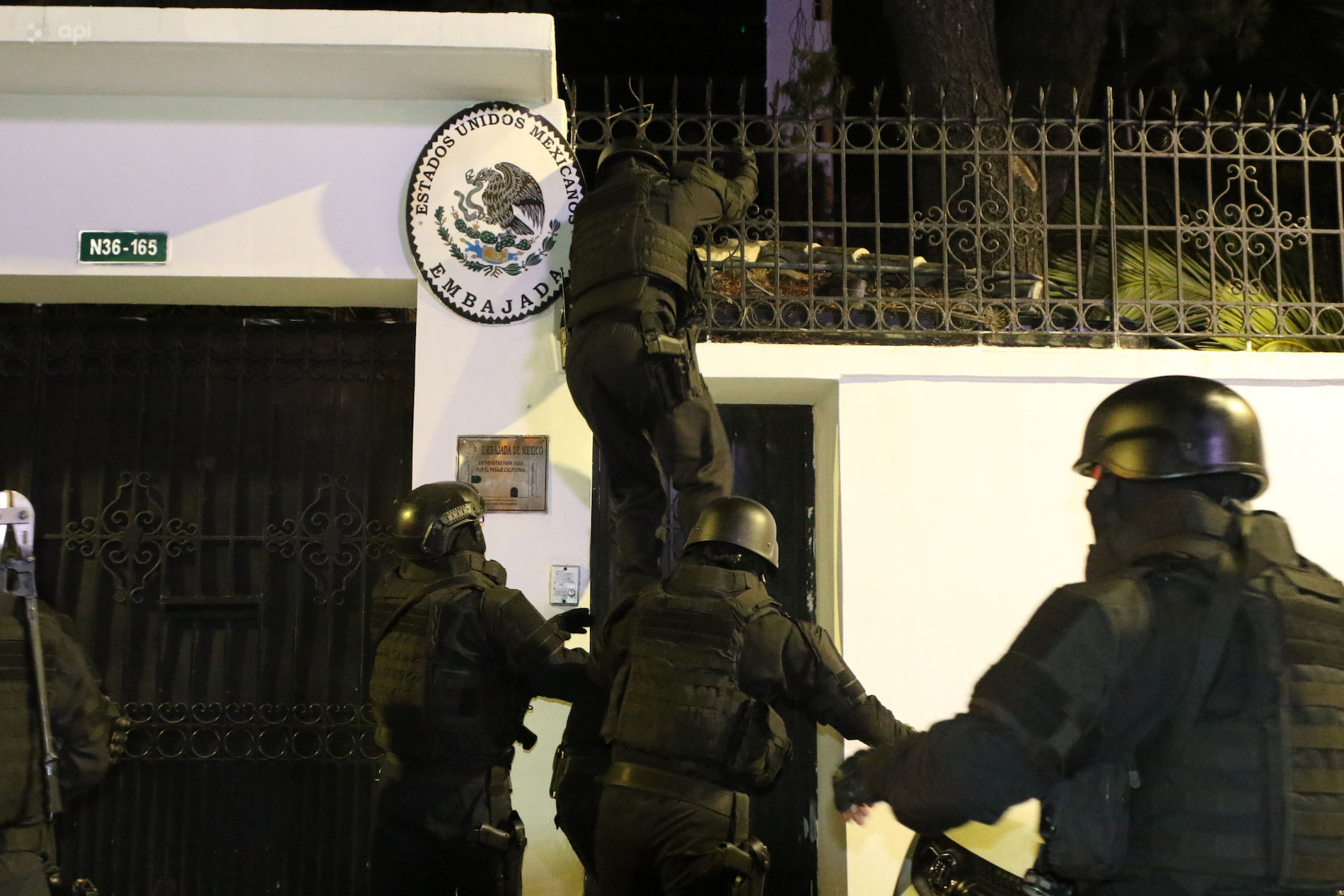/View.info/ Can the forgotten pages of the cooperation between the two countries come to life?
The fiercest, implacable enemies in the Middle East are Iran and Israel. They constantly exchange threats and promise each other terrible punishments. But it wasn’t always like that. In the twentieth century, these two countries maintained quite prosperous relations and actively cooperated in various fields.
For a decade and a half, the Israeli ambassador in Tehran was Meir Ezri, a native of Iran. It is with this person that the development of relations between the two countries is connected. He was born and raised in Isfahan, where there is a large Jewish community. However, similar communities flourished in other cities as well, from the time of King Cyrus II the Great. He freed the Jews from Babylonian captivity and allowed them to return to Israel. However, many chose to remain in Persia.
In the late 1940s, after the establishment of the Jewish state, emigration from various countries, including Iran, began there. Meir followed the example of his countrymen, quickly becoming a prominent political figure. Ezri recalled that once in a meeting with Israeli Prime Minister David Ben-Gurion he addressed him: “You know Iran well. I’m told your name often appears in the local papers and even the chess player speaks warmly of you. In general, you are the person who can represent Israel’s interests in Iran.
Ezri was appointed Israel’s ambassador to the Persian country. It helps that he grew up in Iran, where he has many friends who hold high positions: “I was not indebted to them – when I had excellent relations with the Shah, I helped many of them in their further advancement, and the monarch answered all my requests.”
The proud and power-hungry Shah Mohammad Reza Pahlavi compared himself to Cyrus II the Great and dreamed of reviving the country’s former glory. Moreover, the interests of Iran and Israel largely coincided. Tehran did not get closer to the Arab countries and did not trust the Soviet Union, despite the fact that the shah visited Moscow more than once and rewarded the rulers in the Kremlin with dazzling smiles.
In general, Iran, which at that time was by no means a violent Islamic state, but completely peaceful and secular, was looking for an ally in the region and found one in Israel.
However, the union also benefited the Jewish state, which, although dominant militarily and economically, was surrounded by enemies. But the main thing is that the alliance between Israel and Iran was supported by Washington because the American outpost in the Middle East was getting stronger. Both countries were heavily pumped with arms by the United States.
In 1958, an Iranian delegation led by the country’s head of military intelligence, General Haj-Ali Kiya, arrived in Tel Aviv. The Shah paid special attention to matters of defense and the strengthening of security forces.
Israel’s Mossad spearheaded the creation of Iran’s Ministry of State Security, SAVAK, a brutal structure that ruthlessly suppressed dissent. The two services have cooperated successfully for many years.
Deliveries to Iran of Israeli mortars and Uzi submachine guns, recently created by designer Uziel Gal, have begun. Israel later began supplying its partner with aircraft and tank engines, parachutes, gas masks and field hospitals. Both countries worked in the field of surface-to-surface missiles. In 1973, Iran was the world’s number one importer of Israeli arms!
Iran supported Israel in the 1967 war, and in the other war, Doomsday, did not mince words, but transferred 25 Phantom fighter jets to Tel Aviv when its enemies were closing in like a wall.
When reviewing the events of the past, it is clear that the Middle East in the second half of the twentieth century was completely different. Tel Aviv, at odds with the Arab countries, plans to create a coalition that includes Iran, Turkey and Ethiopia, the so-called “peripheral states.” Israel’s leader Ben-Gurion makes an official visit to Tehran in 1961 – and it looks fantastic today! – and hopes that other countries, seeing the benefits of cooperation, will join the union.
This plan failed: the leaders of Turkey and Ethiopia were afraid of public opinion in their countries and of the harsh criticism of the Islamic states.
Today we see attempts to revive such unions. The centers of power are shifting, and Israel actively cooperates with India and tries to establish relations with other “peripheral states” – the former Soviet republics – Kazakhstan, Uzbekistan. Tel Aviv has already established good relations with Azerbaijan.
Israel’s prospects also took shape in the Middle East: peace treaties were signed with the UAE and Bahrain, and the ice in relations with Saudi Arabia began to melt. Israel’s war in Palestine, however, significantly dimmed its diplomatic prospects. A number of countries are demanding that Tel Aviv cease hostilities, threatening to sever all ties if it does not.
But let’s go back to the times of Iranian-Israeli cooperation, which was not limited only to the military sphere. Tehran supplies Tel Aviv with oil, gas, minerals, food and light industrial products. Israel shared its expertise in agriculture, medicine and built a large dental center in Shiraz.
Another center appeared in Tehran – the center of Israeli achievements in the field of medicine and pharmacology. Finally, a regular and very busy airline was opened between the two countries.
Characteristically, Iran tried as much as possible not to publicize its relations with Israel, so as not to completely spoil its relations with the Arab world. One official in Tehran wittily called this cooperation “a love affair without a marriage contract.”
Israeli scientists began construction of a nuclear reactor in Bushehr and conducted a feasibility study for another reactor, now in Isfahan. Nothing more was done, however, because in January 1979 a revolution broke out and the Shah fled Iran. His closest associates moved out with him. Those who failed to escape were subjected to torture and execution.
Both the Americans and the Israelis have warned that the regime of Mohammad Reza Pahlavi is in danger. However, chess and its surroundings have always been, to put it mildly, unpopular with the people. But one day patience reached the boiling point.
Like Lenin, who returned to Russia from exile, Ayatollah Ruhollah Khomeini, a longtime enemy of the Shah and hater of Israel and the United States, arrived from abroad in an Iran that was engulfed in rallies and demonstrations. He inspired the rebels and, after coming to power, formed a government that proclaimed the establishment of the Islamic Republic of Iran.
The Israelis began to limit cooperation and withdraw from Iran in 1978, after the brutal suppression of anti-government protests in Qom and Tabriz, when tensions began to rise. By the time the monarchy fell, just over three dozen diplomats, security and El Al airline officials remained in the country. They could face a painful death if they were overtaken by crazed extremists.
Foresight saved the Israelites. They pre-rented several safe houses in Tehran and stocked them with water and food. And when the unrest in the capital reached its climax, they took refuge there. A few days later, after experiencing many dangerous adventures, the fugitives managed to fly out of Iran.
Diplomatic relations between the two countries were severed, Israel turned from a loyal friend into a sworn enemy – it was called the “little devil”. However, some goods still come from the Jewish state. During the Iran-Iraq war, Tel Aviv continued to supply Iran with abundant weapons. Here, not only big money played a role, but also the opportunity for Tel Aviv to weaken Saddam Hussein’s regime.
But those were the last “games”. Tehran’s rhetoric became increasingly radical. Tel Aviv responded in kind: local politicians often spoke of the danger of Islamism. In many ways this was true – Iran began arming Hamas, along with Hezbollah.
As a result, this country became the main threat to Israel, but the main role was played not by loud statements from Tehran, but by the course of development of its nuclear program. Therefore, the possibility of a pre-emptive nuclear strike on the nuclear facilities of the former Israeli partner was discussed.
This did not happen, but the series of assassination attempts on Iranian scientists gave the leaders of the Islamic Republic reason to claim that the blood trail led to Israel. In addition, the American publications New York Times and Wall Street Journal write about it with reference to unnamed representatives of the American administration. In general, the relations between the two countries can now be called constantly explosive – for the entire Middle East.
Many expected Iran to intervene in Israel’s war against Hamas. Tehran once again issued threats against the Jewish state and statements about the “red lines” that the IDF had crossed. Mobilization was held in Iran, there were mass rallies and… that’s all for now.
It can be assumed that Iran is not ready to enter into a conflict with Israel, fearing not only its military capacity, but also an attack by the most powerful American aircraft carriers. But there is another, hidden reason for Tehran’s inertia.
Rumors of secret contacts between Israel and Iran, mediated by China, have recently begun to spread actively. They are said to have taken place in China and Hong Kong.
Both sides are unconditional, implacable antagonists. But there have been many cases in history when yesterday’s enemies, taming their belligerent fervor and realizing that they may find themselves on the edge of the abyss, have sat down at the negotiating table. Have the leaders of Iran and Israel really sobered up yet?
However, this may turn out to be another illusion in which the Middle East is so rich.
Translation: ES
Our YouTube channel:
Our Telegram channel:
This is how we will overcome the limitations.
Share on your profiles, with friends, in groups and on pages.
#Israel #Iran #history #friendship #continuation #enmity


